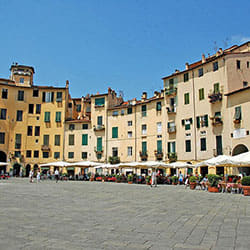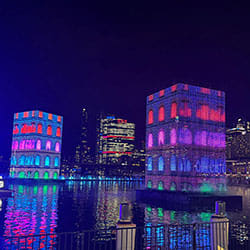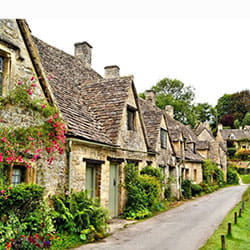When I first came to live in Italy, I couldn’t help but smirk at the Italians who wanted to show off all the Japanese words they knew besides arigato—terms like shogun, samurai, ninja, hara-kiri, and seppuku that now have nothing to do with modern Japanese life.

Then there was the day that an Italian said ippiki-okami to me in their strange Italian accent, which took me a while to get since I never imagined someone would know the Japanese phrase for “lone wolf”. I was left chuckling to myself as I could imagine where they had picked up such a thing.
Karaoke came to Milan in the 1990s, and while the craze later died down a bit in Japan, it was booming here. I didn’t even get a chance to find out if they knew where the word karaoke came from before the Italians were saying it to me and dragging me along to karaoke bars.

I also heard words like geisha and kimono from Italians who were fans of literature. Meanwhile, I suffered from some really mixed feelings when I heard people using the word kamikaze in news reports describing the multiple terrorist attacks perpetuated by Al-Qaida around the time of the September 11 incident in the US.

These days, young people in Italy use words like tsunami, anime, and manga as part of their regular vocabulary. Italy has experienced a boom in Japanese food over the last ten years as well, so in places where previously-unknown ingredients and cooking methods are being used, we’re in an era where you’ll not only hear the expected words like matcha, sushi, sashimi, tempura, and dashi, but even things like umami.

There seem to be so many Westerners who are absolutely in love with Japan, despite the fact that they’ve never been there. There are tons of Italians like that even in my personal circle of acquaintances. And if you really look for them, you can find all kinds of Japan-related events and exhibits going on in Milan all the time.
Just in the last two months, there was a screening of the film Van Gogh & Japan in mid-September, and at the end of the month there was a Japan Festival featuring Japanese culture, food, games, and more. Starting in October there were exhibits titled When Japan Discovered Italy and The Art and Collections of Japan and the West. The permanent exhibits at the same venue were also full of Chinese and Japanese artworks on display.
I’ve now lived in Milan for more than twenty years, and I can’t even count the number of times I’ve had Italian fans of Japan ask me to teach them Japanese. I always turn them down, explaining that I’m not a Japanese teacher, and haven’t been trained to teach Japanese—so I wouldn’t even know where to start.
That said, I did help out an Italian student who decided to teach herself Japanese because she watched anime and fell in love with Japan—just because I was so impressed with her dedication. But since I’d never taught Japanese, I just struggled along using trial and error.
Also, I didn’t expect the student to make me laugh so hard at things like this…
“Wait… koohii is how you say “coffee”?!”
“Terebi is TV?!”
“Eakon is airconditioner?!”
“Itaria? Is… Italy?!?!”
I’m pretty sure we wouldn’t get very far in our lessons if we spent the time laughing ourselves to tears over every word on the flashcards!






























































